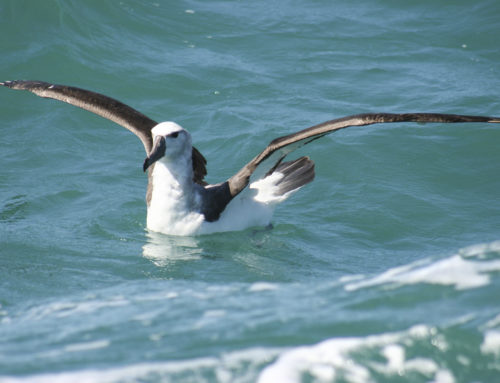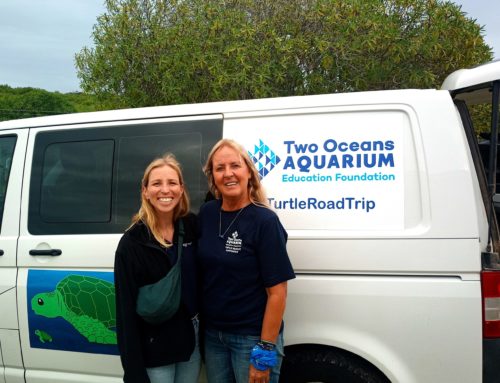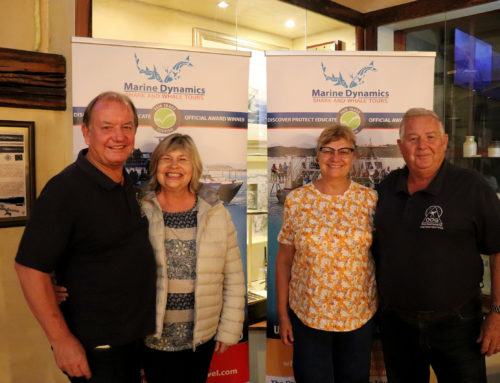Introducing our first Leeds Uni masters candidate
June 12, 2012 by dyertrust
Ill have to go with the old clich and say, Ive loved sharks since I can remember. My parents are still trying to fathom where it started. I grew up in the city of Bradford, West Yorkshire, England; a city not particularly well known for producing marine biologists.
As a child I loved all animals, particularly the carnivorous type, and had the dinosaur phase. Something about sharks captured my imagination though, and I will fully admit that it was initially the negative portrayal and attack stories that I had a morbid fascination with. Early signs started when my plastic toy shark used to bite younger sisters Barbie doll and red felt tip pen was used to add special effects. And (clich again), I remember sitting riveted to the TV as my family all fell asleep around me the first time I watched Jaws, aged 9, and how loudly I screamed with joy when I unwrapped the VHS copy of it one Christmas.
A trip to South Africa for an internship with Great white sharks in Mossel Bay following my graduation in 2008 confirmed my passion and ambition to be a shark researcher. Since then, I have been fortunate to fly out to South Africa another four times where I have volunteered again with a white shark research program, learned to skipper a boat, tracked sharks, trained interns, designed surveys of Cape fur seals, assisted in filming documentaries, and presented at a shark conference. In 2011 a dream came true for me to act as a zoologist and guide for a season with Apex Shark Expeditions in False Bay, the home of flying great white sharks, where a lot of hunting behavior can be observed. Seeing 40+ predations in one morning did not disappoint. In this time I have met some amazing people and lifelong friends who share a strong passion for these animals.
Now I am commencing a two month study in collaboration with Dyer Island Conservation Trust and Marine Dynamics for my Masters thesis. It came about by pure coincidence as a project option from Leeds University but felt somewhat meant-to-be. I will be looking at external copepod parasite infection of the white sharks in Gansbaai and attempting to quantify general shark health, and whether the two are correlated. Parasites cause stress to their host as they commandeer energy resources and the hosts immune system attempts fight the infection. They may also facilitate transmission of other diseases. In Soay sheep, more inbred individuals have been shown to carry heavier loads of intestinal worm parasites. Honey bee declines due to a lethal virus are exacerbated by a parasitic mite. Despite extensive parasite research in other species, few studies have focused on this aspect of the white sharks biology. If the white shark is indeed shown to be suffering from severe recent population declines and existing in low numbers, could parasites, with which is has coexisted for millions of years, start to pose more of a threat?
Body condition (here in terms of mid-body girth due to a distended stomach or liver), wounding, size or sex differences may have an effect on shark fitness. For example, are females significantly more scarred due to aggressive mating attempts from males (where they are assumed to bite during mating as in other shark species), and does this make them more susceptible to parasite infection? Are skinnier sharks (implying not being well-fed or lacking large energy stores in their liver) more infected by parasites? Are larger individuals more infected? I will be doing this by collecting footage from an underwater camera mounted on a pole. In addition, this camera is accompanied by a pair of parallel green lasers which will be used to project dots 50cm apart on to the shark, so I can attempt to estimate shark length as accurately as possible.




